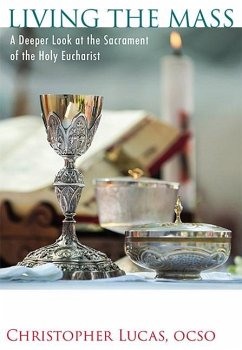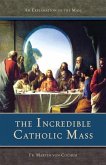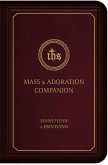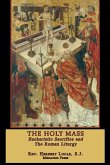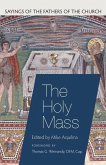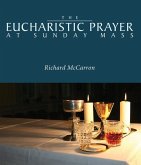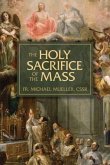In Living the Mass we encounter the Holy Eucharist as paschal mystery, the "Source and Summit of the Christian Life." We encounter God's love for us through what God has done and is doing for us in the Eucharist. The book presents the paschal mystery defined in a Trinitarian mode as the passion, death, resurrection, and ascension of Jesus and the sending of the Holy Spirit at Pentecost. It also presents new theology on the paschal mystery based primarily on the abandonment text of Matthew 27:46. God gives God's self to us in love through the Mass as the ongoing work of redemption, and we imitate that love in response by living the Mass in everyday life--professing Christ, growing in virtue, overcoming sinful tendencies, increasing in knowledge of God, and exercising faith, hope, and love.
Hinweis: Dieser Artikel kann nur an eine deutsche Lieferadresse ausgeliefert werden.
Hinweis: Dieser Artikel kann nur an eine deutsche Lieferadresse ausgeliefert werden.

